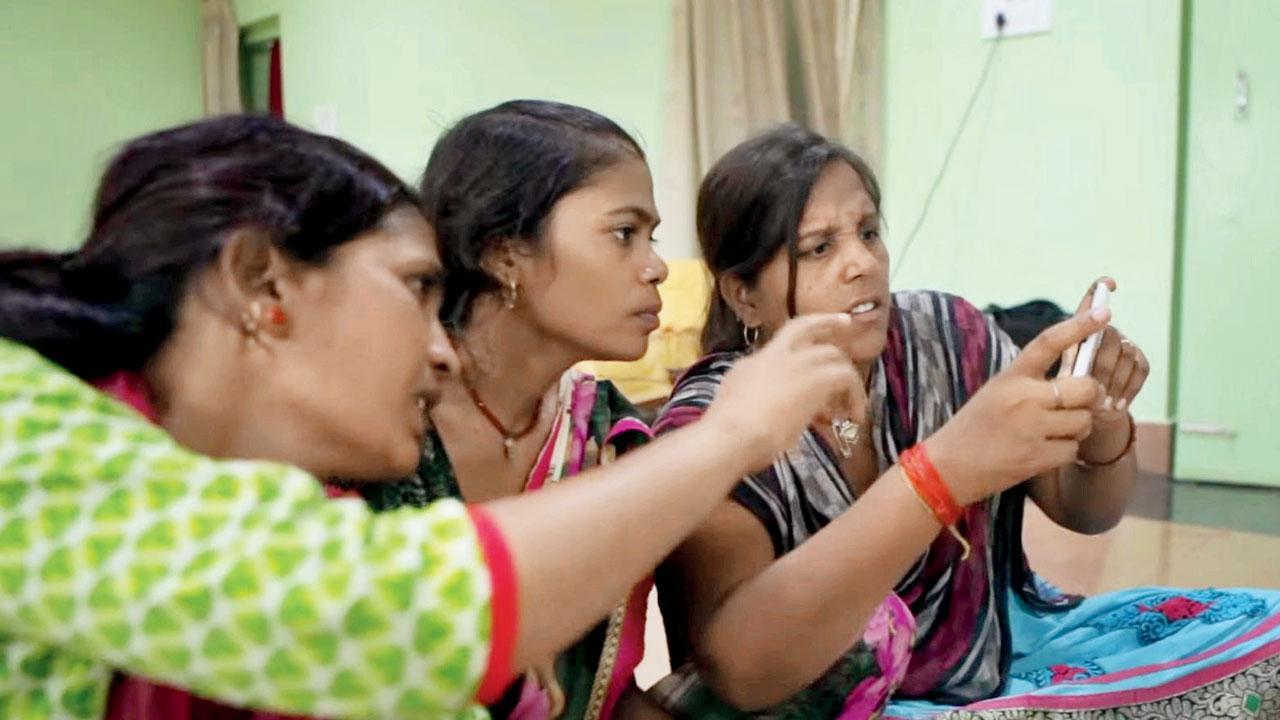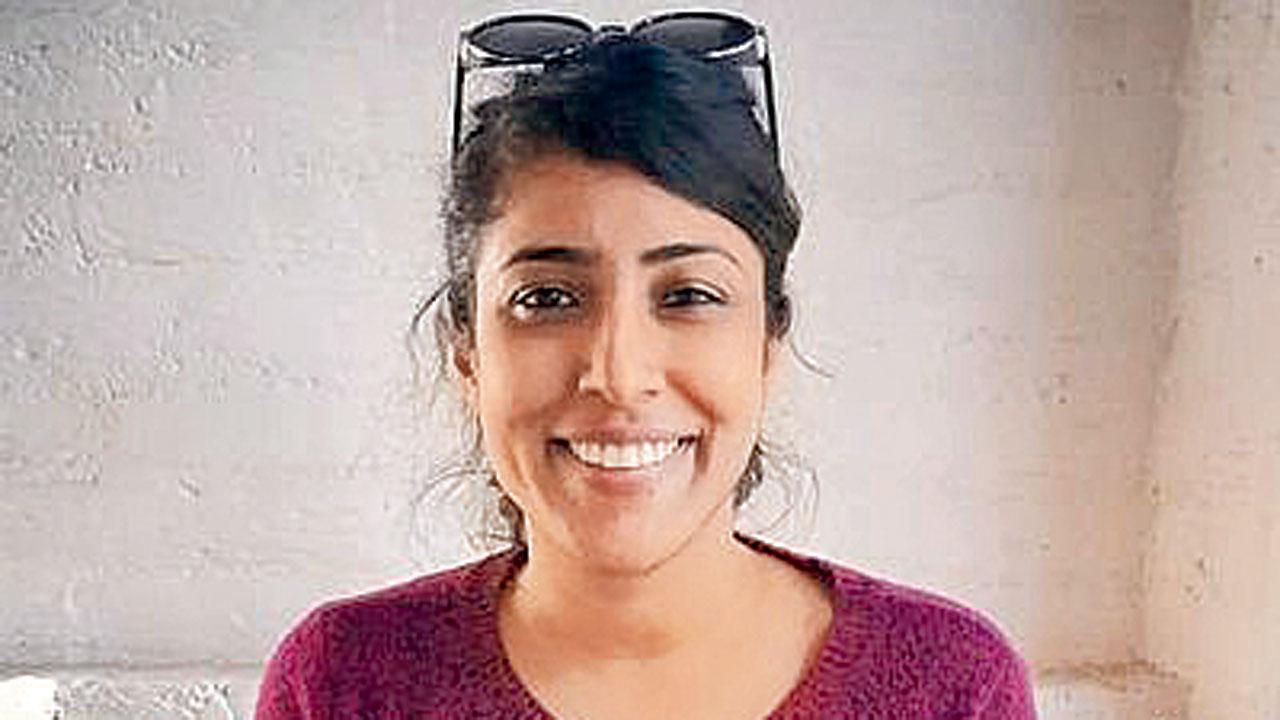Been over two years—how come you can’t watch India’s first ever non-foreign category, Oscar-nominated feature? I ask the director

A still from the trailer of Writing with Fire
 The International Film Festival, Amsterdam (IFDA), being the world’s largest such fete, is to documentaries, what the Oscars are to American cinema—most sure-fire place for indies to go instantly global!
The International Film Festival, Amsterdam (IFDA), being the world’s largest such fete, is to documentaries, what the Oscars are to American cinema—most sure-fire place for indies to go instantly global!
ADVERTISEMENT
Which is where the film Writing with Fire had its first major/gala offline screening, in 2021. Soon after, the film’s protagonist, Meera Devi, whose inspiring story the audience had just been awed by, strolled in. Her presence wasn’t announced. The crowd stood in ovation.
On stage, Meera fished out her camera to click this audience. Totally reversing the gaze, instead—in what could be a post-script moment in the movie, Writing with Fire, itself!
Only that with non-fiction, I guess, you just have to arrive at a point when the story must stop being told! For, the lives of the characters carry on.
Also Read: Yaniki, the yoni is essential, no?
Writing with Fire, co-directed, produced, edited by Rintu Thomas (along with husband, filmmaking partner, Sushmit Ghosh), tracks a slice in the life of three rural, Dalit ‘characters’, Suneeta, Shyamkali, and the lead, Meera (chief reporter), who work with Khabar Lahariya (KL), in Uttar Pradesh. This is roughly between 2016 and 2019.
 Rintu Thomas. Pics/Twitter
Rintu Thomas. Pics/Twitter
KL is India’s only newspaper, run entirely by women, and subsequently a unique digital platform. The latter description is essential, because the film looks at the transition of the paper’s reporting, editing, from print, to text, plus video.
Soon as the principal photography was over, and the pandemic set in, Writing with Fire’s co-director Thomas tells me, KL’s “huge, timely heads-up into digital journalism” actually began to bear real results. For one, the newspapers were off the doorsteps.
And a “decentralised” KL literally had eyes and ears to broadcast/report directly from—filling the “information black-hole that rural India had got into,” with mainstream urban attention altogether shifting away from it, anyway.
This is when Thomas and Ghosh had four years of the footage/story of Meera & Co. to seriously sift through, and pare down (eventually to 94 minutes)—to make it both human/personal, and cinematic.
Also, to do it with “delicacy”, given how “intersectional” the subject—simultaneously, subtly, sweepingly touching upon “gender, class, caste, democracy.”
The filmmaking couple moved their editing studio to a Himachal village, 20 km off Manali. The finished documentary, their feature debut, premiered at Sundance, in January 2021.
The festival was held online, due to the pandemic. At Sundance, Writing with Fire won two gongs, including the Audience Award. Which automatically indicates its cred/accessibility for movie-goers, at large.
Hence—a likely global distribution deal, that also obviously involves a fair bit of parleys. Journalists Meera & Co., indeed, participated in these conversations, going from festival to festival (albeit, mostly online)—further engaging with audiences to join the journeys of their incredible lives. Even earning for KL, precious award/grant, besides obvious acclaim.
This was for a UP news portal, that started off as a one-edition newspaper, the obvious ‘international moment’—for the consequent coverage of their work (through the film) in practically all western majors I’ve looked up online.
And then a moment happened that also hadn’t for any Indian film before—namely, the Academy Award nomination, for a feature, in a category that isn’t exclusively for international cinema (i.e., Mother India, Salaam Bombay!, Lagaan). It’s for a documentary feature, which is possibly the toughest category anyway.
This Oscar-nom announcement is when many of us first saw Thomas—going candidly ecstatic on a video that went viral on Twitter. Writing with Fire (2021) had made history. With the Oscars, though, she says, “They send you a beautiful invite, yes. But your stay, limo, everything else, is on you!” The film is an independent, self-production.
KL, founded in Chitrakoot (UP), has been around since 2002. I first read about it in Vinod Mehta’s book Editor Unplugged (2014). The film, of course, shows the newspaper pivoting into the digital space.
But what global audiences saw in it, it’s clear, is the setting, UP (indeed, India), pivoting politically at the same time. What with the documentary, and the journalists in it, effortlessly surveying/capturing the rise of young, religion-based/Hindutva human elements on the ground as well.
One of them being a rather frightening-sounding member of UP CM Yogi Adityanath’s personal, youth, religious group, Hindu Yuva Vahini. Although that’s really not what the film is about. It looks at politics as response to injustice and unfairness, which is the sort of journalism the brave women of KL evidently practise.
Thomas tells me KL’s social media handles celebrated Writing with Fire’s Oscar nom. Which, she points out, pretty much coincided with Adityanath’s triumphant re-election in the 2022 UP polls. Also, she says, there was a change in the management of KL, which later “put out a statement suggesting the film doesn’t represent them anymore!”
Writing with Fire, Thomas reveals, is the only Indian documentary to secure a theatre release in three major US cities. In India, the film, which premiered in January 2021, has been seen by no one on a legit online platform, let alone cinemas.
It’s not that Thomas hasn’t screened the film for all major OTT buyers/bosses: “They say: Great, but what’s your next film?” In the “eerie silence of Himachal”, Thomas and Ghosh have decided on a fictional, horror movie, next. No, she’s not kidding!
Mayank Shekhar attempts to make sense of mass culture. He tweets @mayankw14
Send your feedback to mailbag@mid-day.com
The views expressed in this column are the individual’s and don’t represent those of the paper.
 Subscribe today by clicking the link and stay updated with the latest news!" Click here!
Subscribe today by clicking the link and stay updated with the latest news!" Click here!








